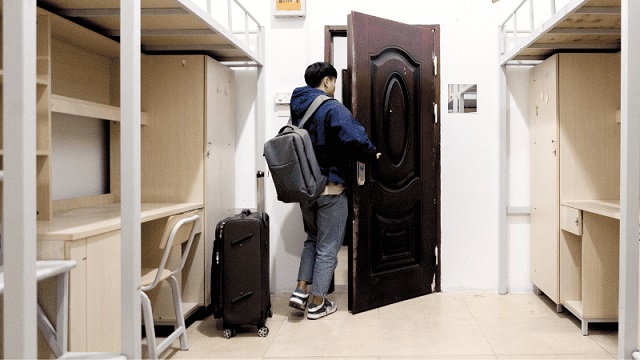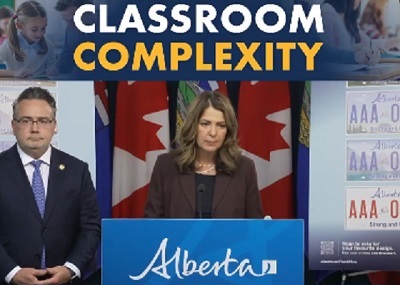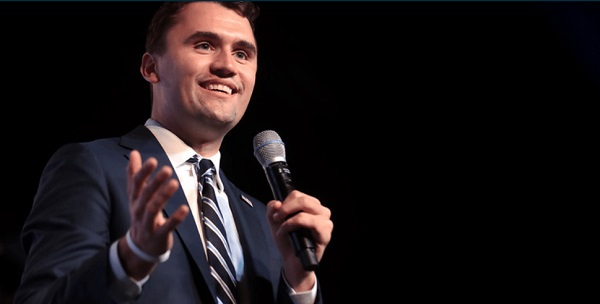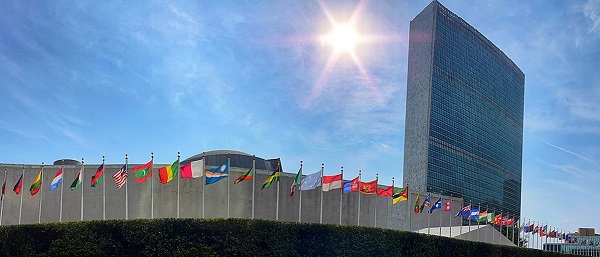Education
Bad student visa policy is no solution for bad student visa policy

From the MacDonald Laurier Institute
By Ken Coates
Making matters worse, a Statistics Canada report released in November of 2023 found that the number of postsecondary students actually enrolled at Canadian Universities was 20% to 30% smaller than the total number of individuals with international student visa’s.
Post-secondary education is in turmoil, thrust into the headlines by the Government of Canada’s decision to cut back on international student visas and work permits. The near panicked response by colleges and universities across the county has attracted attention. The federal decision is poor public policy, with flawed timing, significant negative impacts, and potentially serious long-term implications. But the ‘solutions’ implemented in January 2024 are a classic example of using bad policy to address bad policy. The fallout from this mélange of policy decisions could severely damage Canadian post-secondary institutions and the Canadian economy.
Governments, colleges, and universities have come to rely on international students, now numbering close to 1 million in Canada, particularly their tuition fees and the money that they bring into the country. The tuition fee revenues freed governments from the obligation to provide adequate funding to post-secondary institutions. Colleges and universities, for their part, used international student funding to avoid difficult, painful decisions related to the level of provincial support (the territories are not strongly affected by these processes).
The current controversy reflects more than a decade of poor and ineffective federal policies. Canada opened the gates for immigration, reaching unprecedented levels of refugees, formal immigrants, and hundreds of thousands of international students. Making matters worse, a Statistics Canada report released in November of 2023 found that the number of postsecondary students actually enrolled at Canadian Universities was 20% to 30% smaller than the total number of individuals with international student visa’s. Pointing to significant abuse of the study permit system, the report states, “It is unclear whether [the international ‘students’] stayed in Canada and, if so, what their main activities were.”
Our rapidly rising population is now blamed, not always accurately, for a serious national housing shortage and sky-rocketing prices, particularly in the major cities. The international student debate highlights the shocking shortcomings of the nation’s approach to housing and the absence of a thoughtful plan for population growth and rapid urbanization.
Bad federal policy is more than matched by poor provincial decisions, particularly in Ontario. The Liberal and Progressive Conservative administrations in Ontario have underfunded colleges and universities, dramatically so, relative to the other provinces and territories. Frozen tuition fees only added to institutional fiscal challenges. Several provinces, again led by Ontario, doubled down by authorizing many for-profit private colleges, most operating in league with public universities and colleges, to recruit international students. At the provincial level, the influx of international students, coupled with high tuition fees, masked the deficiencies of provincial funding, leaving underlying financial challenges unaddressed.
Colleges and universities had bad policies of their own. Without the government funding to meet their salary, administrative and capital costs, post-secondary institutions became addicted to international student fees, the crack cocaine of advanced education. Dozens of colleges and universities, enrolled thousands of international students, feeding the bottom line but increasing the reliance on international students and high tuition fees. They assumed, over-optimistically, that the steady flow of international students would never slow, let alone stop. They are now paying the price for that miscalculation.
Some institutions, particularly small institutions in northern and small-town locations, eve established satellite facilities in big cities to capitalize on strong student demand and to supplement small and stagnant enrollments on the home campus. International students and satellite operations were lifelines for institutions that would otherwise be in severe difficulty.
The Government of Canada’s response to the convergence of multiple bad policy streams consists of additional bad policy decisions. International student visas have been slashed by 35% and student-friendly work permit arrangements have been cut back dramatically. Canada’s once wide-open doors for international students have been partially closed. A carefully cultivated reputation for being receptive to foreign students has been degraded, if not dismantled, in one quick federal move.
The federal policy, announced with seemingly little coordination with provincial authorities and institutions, is a plainly political move, an urgent step taken by a Liberal government reeling in the polls. The decision was released in January 2024, at a key stage in the international student cycle. Colleges, public and private, are vulnerable to dramatic shifts in enrollment and they now face catastrophic losses of income. The implications go much further. Residences will want for students and employers of the eager international students will struggle to find replacements. Many college and university faculty and staff, particularly vulnerable short-term and sessional workers, will likely lose their jobs. And the national economy will lose out on a big portion of the billions of dollars spent annually by the international students.
The problem has been years in the making. The government may have been trying to make up for lost time but the hasty federal decision has already had an impact. Colleges and universities are already reporting sharp drops in applications. The message that Canada is no longer friendly for international students is out globally. The damage to student enrollment might be greater than anticipated.
A more appropriate approach would have been to announce a gradual reduction, starting in 2025, giving the colleges and universities time to adjust to a potential fiscal disaster. Another sensible alternative could have been to take aim at the abuse of the student visa system and to ensure those who entered the country under a study permit were actually enrolled in and attending classes. Bad policy often comes from knee-jerk reactions to political processes; good policy takes careful thought and, often, time.
Canada’s large international student recruitment industry brought billions of dollars into the Canadian economy. Thousands of students worked while they studied and made successful transitions to permanent resident status. Many people who came to Canada as high fee-paying students have become Canadian citizens and taxpayers. The students followed the rules, as did the colleges and universities that capitalized on clear and long-standing government policy. The federal and provincial policies may have been poorly designed and inappropriate, but governments set the parameters and expectations and shouldn’t punish others for their shortsightedness.
Bad policy, to be succinct, is no solution for bad policy, but that is what is happening to international student education in Canada.
Ken Coates is a distinguished fellow and director of Indigenous affairs at the Macdonald-Laurier Institute and a professor of Indigenous governance at Yukon University.
Alberta
Diploma Exams Affected: No school Monday as ATA rejects offer of enhanced mediation

Premier Danielle Smith, Minister of Finance Nate Horner, and Minister of Education Demetrios Nicolaides issued the following statement.
“Yesterday, the Provincial Bargaining and Compensation Office wrote to the Alberta Teachers’ Association (ATA) and formally requested an agreement to enter an enhanced mediation process.
“This process would have ensured that students returned to the classrooms on Monday, and that teachers returned to work.
“Negotiating would have continued with the ATA, Teachers’ Employer Bargaining Association (TEBA) and a third-party mediator to propose a recommended agreement.
“We are very disappointed that the Alberta Teachers’ Association refused this offer. Teachers and students should also be disappointed.
“PBCO made this offer to the ATA because the union has not made a reasonable offer and this strike is impacting students. Alberta’s government is trying to put kids first and bring an end to this strike.
“The offer of enhanced mediation provided a clear path to ending it.
“We want the same things as the ATA: More teachers. More pay for teachers. More educational assistants. And more classrooms.
“This strike has gone on too long and we are extremely concerned about the impact it is having on students.
“We are willing to consider further options to ensure that our next generation gets the world-class education they deserve. After about three weeks, a strike of this nature would reach the threshold of causing irreparable harm to our students’ education.
“The ATA needs to do what is right for its members, and for all Alberta students.
“If it refuses to do so, we will consider further options to bring this strike to an end.”
Diploma exam update
November diploma exams will be optional for students.
With instructional time in schools disrupted due to the teacher strike, the November 2025 diploma exams will now be optional for students. Students who wish to write a diploma exam may request to do so, and their school boards will accommodate the request.
The optional diploma exams apply to all schools provincewide. These exams will still take place on the currently scheduled dates.
Students who choose not to write the November diploma exams can still complete their courses and graduate on time. Their final grade will be based entirely on the school-awarded mark provided by their teacher.
Choosing not to write the November diploma exams will not affect a student’s ability to apply to, be accepted by, or attend post-secondary institutions after graduation.
No changes have been made to the January and June diplomas and provincial achievement tests.
Quick facts
- Students are automatically exempted from writing the November diploma exams but can request to write them.
- School boards must allow the student to write the diploma exam if requested.
Alberta
Premier Smith addresses the most important issue facing Alberta teachers: Classroom Complexity

Premier Danielle Smith is posting this response to a media question about Classroom Complexity.
While Albertans are hearing a lot about capping class sizes, Premier Smith says it might be a much better idea to talk about capping “complexity”.
The challenges teachers face in today’s classrooms are recognized, and work continues toward practical solutions that address their concerns.
Achieving a fair and reasonable agreement that best supports students remains a top priority. pic.twitter.com/o4UCt7sDoU
— Danielle Smith (@ABDanielleSmith) October 16, 2025
-

 Red Deer2 days ago
Red Deer2 days agoThe City of Red Deer’s Financial Troubles: Here Are The Candidates I Am Voting For And Why.
-

 Business2 days ago
Business2 days agoUN, Gates Foundation push for digital ID across 50 nations by 2028
-

 COVID-192 days ago
COVID-192 days agoThe Trials of Liberty: What the Truckers Taught Canada About Power and Protest
-

 C2C Journal2 days ago
C2C Journal2 days agoCharlie Kirk and the Fragility of Civic Peace
-

 International1 day ago
International1 day agoPoland’s president signs new zero income tax law for parents with two children
-

 Automotive1 day ago
Automotive1 day ago$15 Billion, Zero Assurances: Stellantis Abandons Brampton as Trudeau-Era Green Deal Collapses
-

 Business21 hours ago
Business21 hours agoTrump Admin Blows Up UN ‘Global Green New Scam’ Tax Push, Forcing Pullback
-

 International2 days ago
International2 days agoAustralian territory bans men from women’s prisons in national first



